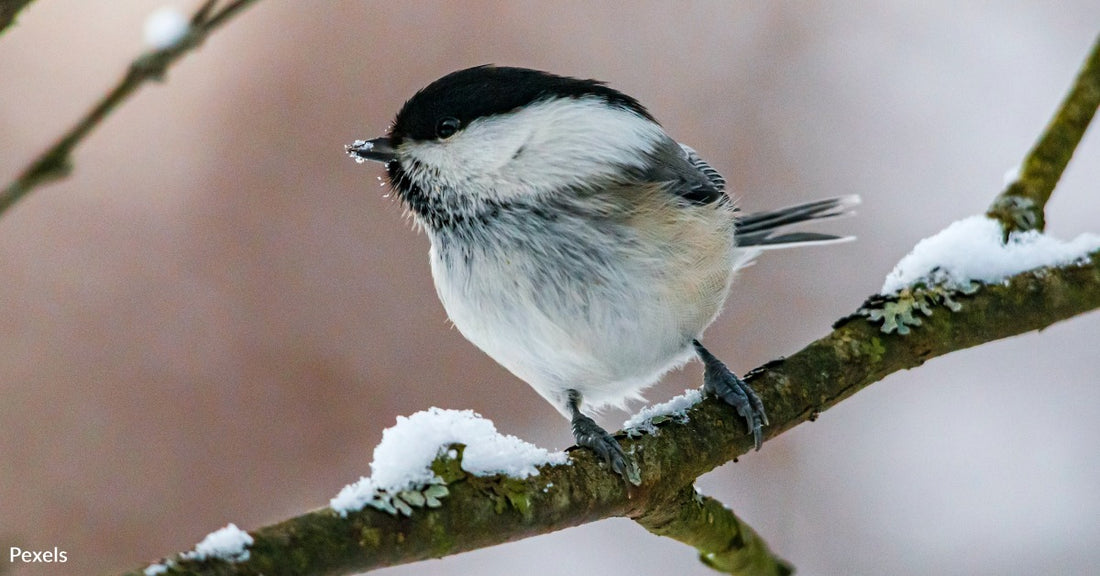Be Kind To Our Feathered Friends: A Guide To Being A Responsible Bird Watcher
Matthew Russell
In a world that often seems increasingly detached from the natural realm, the simple act of feeding wild birds in our backyards has become a source of both solace and connection. The COVID-19 pandemic brought about unexpected shifts in our lives, prompting many to turn their attention to the avian wonders that share our spaces. However, as we revel in the joy of bird watching and feeding, it's crucial to recognize the responsibilities that come with it.
Through the art of responsible bird watching, you can nurture nature while minimizing potential harm.
The Surging Popularity of Bird Feeding: A Double-Edged Sword
Feeding wild birds, a long-cherished tradition for bird enthusiasts, experienced an unprecedented surge in popularity during the global lockdowns of the pandemic, USA Today reports. While this trend has provided people with a renewed sense of connection to the natural world, it has also raised concerns about the potential consequences for the birds themselves.
 Photo: Pexels
Photo: PexelsKeep a respectful distance to avoid causing stress to birds.
The Downsides of Unregulated Bird Feeding
As bird feeders adorned windowsills and backyards, researchers began to uncover both positive and negative outcomes. Those who oppose widespread bird feeding often cite reasons such as the spread of diseases, altered migration patterns, and even favoring certain bird species over others, reports the U.S. Fish and Wildlife Service. Unbalanced diets resulting from human-provided food scraps can lead to poor nutrition for the birds, impacting their overall health.
A Sanctuary for Both Birds and Humans
Despite the potential downsides, engaging with wild birds through feeding has been hailed as an effective means of connecting with nature and boosting mental well-being, the National Institutes of Health reports. As more people find solace in natural settings, the act of bird watching has become a pathway to tranquility amid the chaos of urban life.
 Photo: Pexels
Photo: PexelsMinimize disturbance to birds through gentle movements and quiet observation.
The Responsible Bird Watcher's Code: Nurturing Nature, Minimizing Impact
As you embark on your journey to become a responsible bird watcher and feeder, it's essential to adhere to a code that ensures the well-being of the birds you cherish.
1. Mindful Feeding Practices
When offering sustenance to our feathered friends, exercise caution and restraint. Follow these guidelines to ensure a healthy and harmonious feeding environment:
- Choose the Right Food: Opt for commercially available wild bird food from reputable pet food companies. Human food may lack essential nutrients and could even be harmful to birds, Chipper Birds reports.
- Portion Control: Provide only the amount of food that birds can consume in a day. Overfeeding can lead to wasted food and potential health issues for the birds.
- Maintain Cleanliness: Regularly clean your feeders and bird baths to prevent the spread of diseases, Backyard Life reports. A clean feeding station promotes the well-being of both birds and the environment.
 Photo: Pexels
Photo: PexelsEngage in responsible practices to protect avian welfare.
2. Diversity Matters
Embrace the diversity of bird species by creating a welcoming environment that caters to a wide range of birds. Consider the following:
- Habitat Enhancement: Plant native vegetation to attract a variety of bird species. Native plants provide natural food sources and shelter, Audubon reports.
- Species-Appropriate Food: Different bird species have distinct dietary preferences. Research the birds in your area and offer food that suits their needs.
 Photo: Pexels
Photo: PexelsMindful bird watching contributes to mental well-being.
3. Strike a Balance
While bird feeding can be an enriching experience, it's essential to strike a balance that benefits both birds and the environment:
- Natural Food Sources: Encourage birds to forage for natural food sources, supplementing their diet with your offerings rather than solely relying on them.
- Moderation: Be mindful of the frequency and quantity of feeding. Too much reliance on human-provided food can disrupt natural foraging behaviors, PBS reports.
 Photo: Pexels
Photo: PexelsObserve birds with reverence, ensuring minimal disruption.
4. Responsible Observing
Bird watching involves more than just feeding. Cultivate responsible observing practices that prioritize the well-being of the birds:
- Respectful Distance: Maintain a respectful distance from birds to avoid causing stress or disruption to their activities.
- Minimize Disturbance: Avoid sudden movements, loud noises, or intrusive behaviors that could startle the birds, recommends Chipper Birds.
 Photo: Pexels
Photo: PexelsRecognize the role of bird watching in connecting with nature.
A Symphony of Coexistence
Bird watching and feeding are symphonies of coexistence, where humans and birds share a delicate balance. By embracing responsible practices, you become a steward of this harmonious relationship, nurturing nature while minimizing your impact. As the feathers of vibrant plumage dance before your eyes and melodious chirps fill the air, let your heart be guided by a commitment to the well-being of the avian companions that grace your world.
Let your love for birds be a beacon of inspiration, guiding your actions as you embark on this enriching journey of responsible bird watching. Your efforts will contribute to the vitality of avian life and the preservation of the natural world we all hold dear. Click below and join the movement for responsible bird watching.

